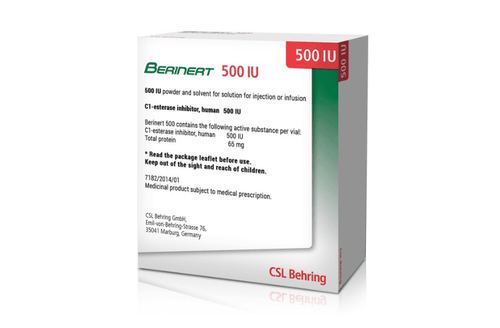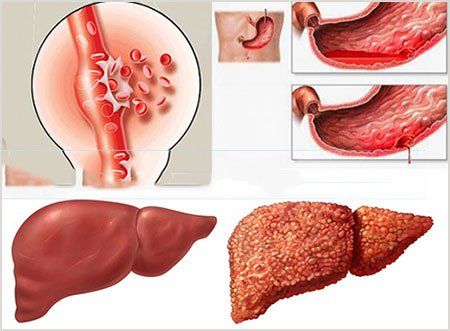This is an automatically translated article.
Posted by Master, Doctor Mai Vien Phuong - Department of Examination & Internal Medicine - Vinmec Central Park International General Hospital
Although there is often no obvious cause, certain activities or situations are known to trigger symptoms of hereditary angioedema. These triggers include drug trauma, stress, and certain physical activities.
1. Hereditary angioedema triggers
1.1. Physical activity Physical activity is one of the factors that cause symptoms in people with hereditary angioedema. These factors include swelling of the feet from prolonged standing, and swelling of the hands from gripping tools. Other repetitive activities that lead to flare-up of angioedema symptoms are:
Typing Lawn mowing, hoes and hammers Some patients are also triggered by overexposure to the sun, cold or water. hereditary angioedema. Other environmental factors include insect bites or stings, pollen, animal dander, and contact with rubber.
1.2. Stress and trauma Certain physical and emotional traumas can trigger angioedema anywhere on the body. Dental care is especially important, as a flare-up around the face or throat can lead to airway swelling.
Injury-related triggers may include:
Stress Fatigue Infection Infection Surgery Dental work Tongue or face piercing Illness 1.3. Hormonal changes Hormonal changes can lead to factors that trigger angioedema. Some women report an increase in symptoms during menstruation, during pregnancy. In addition, hormone replacement therapy or estrogen-based birth control can also trigger factors that cause more frequent and severe angioedema.
1.4. Drugs that Trigger Hereditary Angioedema Blood pressure medications containing ACE inhibitors may worsen symptoms of angioedema. If you have hereditary angioedema and require blood pressure medication, your doctor will advise you to prescribe an alternative that does not contain an ACE inhibitor. However, before starting any new medication, it's best to discuss it with a specialist.
Some other drugs can also trigger angioedema:
Aspirin NSAIDs Antibiotics Oral contraceptives Serum derived drugs

1.5. Diet Some people with hereditary angioedema may be sensitive to certain foods, such as:
Seafood Shellfish Nuts Eggs Milk 2. Preventing Triggers Once You Know Hereditary angioedema causes or triggers try to avoid them. If you're stressed or tired, talk to your doctor about lifestyle changes you can make.
If you know you will need surgery or tooth decay, you may want to have short-term treatment with preventive medicine. There are several options for prophylactic treatment:
High-dose androgen therapy before and after surgery. Take a concentrated C1 inhibitor in the hours immediately before surgery. Even if you get preventive treatment, new attacks can still occur. It is important that medication is always available and how to use it effectively.
3. Monitor Hereditary Angioedema Triggers The American HAE Association recommends documenting disease flare-ups, whether mild or severe. A diary will help you and your doctor track an effective treatment plan and find the causes of flare-ups.
The diary must contain a description of the outbreak, what you did to treat it, and how you responded. By anticipating and preparing to treat outbreaks of hereditary angioedema, you can control the disease and lead a better quality of life.
Please dial HOTLINE for more information or register for an appointment HERE. Download MyVinmec app to make appointments faster and to manage your bookings easily.
References:Delves, P. J. (2014, March). Hereditary and Acquired Angioedema merckmanuals.com/professional/immunology-allergic-disorders/allergic,-autoimmune,-and-other-sensitive-disorders/hereditary-and-acquired-angioedema HAE attack triggers. (2016) haea.org/what-is-hae/attack-triggers/ How can HAE be treated? (2016) haei.org/hae/how-can-hae-be-treated/ Work life and managing HAE. (2016) haea.org/work_life_and_managing_hae/














